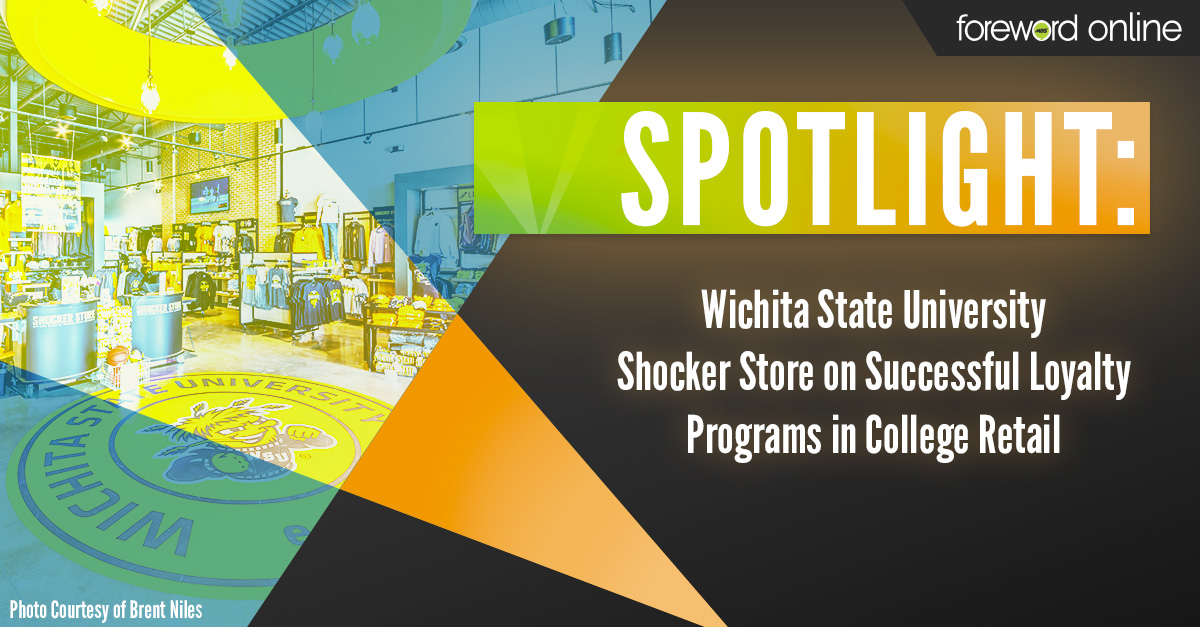If there’s one thing UCM University Store Director Charlie Rutt knows it’s that families new to the course materials world need guidance. Many students start school without awareness of the cost of textbooks. Rutt said that, unless families are warned, they will feel deceived when they discover how much they have to spend at the college store. It’s like being invited to a free dinner only to find out you have to pay when the check comes.
“If I said, ‘Lori, would you like to come to dinner tonight,’ and you said, ‘Yes,’ well, by invitation you have an expectation that I’m buying,” Rutt said. “Nothing would be worse than to go to that dinner and the wait staff says, ‘Will this be on one check?’ and if I replied, ‘No, it’s going to be two.’ You’re not prepared to buy your meal because you believed that you were going to be a guest.”
To ensure families don’t feel cheated, Rutt makes the University Store a staple at UCM orientation. He offers a PowerPoint presentation, which leads off with a slide demonstrating the bookstore’s efforts to keep prices low for students.
“UCM Students saved $2.96 million in 2017 from University Store’s rental program in 2017,” it says.
It also clearly explains the pros and cons of renting a textbook versus purchasing a book — and it spells out exactly how much families can expect to spend each semester at the bookstore. This year that number comes to $476 per term.
“One of the things we’ll make sure our families understand is what the average cost will be for course materials for the coming year. We want families prepared,” said Rutt.
Rutt has found that this communication helps ensure that students not only make it to the bookstore during orientation but buy their textbook in time for class. Because families have fair warning about what they need to spend on books, they’re able to set aside appropriate amounts each term. Also, the University Store’s transparency about costs and savings keeps customers returning.
“We budget for our living expenses. We budget for our insurance. So, one of the things we want to communicate is what our families can expect to pay for course materials. We’ve collected the data. We review it annually so that we’re giving valid information to our student families about the cost of course materials,” he said.
Rutt also points out several other critical bookstore features in his orientation PowerPoint, including:
- The University Store loyalty program
- The opportunity for students to sign up SMS communication
- The bookstore’s timeline for reservations, distribution, rentals, returns and buybacks
- The bookstore’s Facebook, Twitter and Pinterest accounts
- The bookstore’s vending machines, which sell pens, pencils, test forms, calculators and other last-minute materials
The University Store’s flat-rate rental program of $46 per text that dates back decades. That, too, offers both simplicity and reliability, which inspires customer loyalty. Rutt explained that, even though customers will occasionally go to another store for a bargain, they typically make University Store they’re primary course materials supplier because of the rentals program — and because of what they’re able to learn at orientation. He said it works much the same way in other retail industries, where customers place value on time.
“You have lots of grocery stores, for example. But I’m going to guess that you do not shop at more than two of them. One of them is your primary grocer. But when you see an ad that says — and it’s just a simple example — chicken breasts are 69 cents a pound, you’re probably going to go over there and get the chicken. But everything else is going to come from your regular store. Because our time has value. And you know as well as I do when time is so precious, we’re sometimes willing to pay to be able to get shopping done in one trip, one store. That’s what we’re doing with rentals.”






